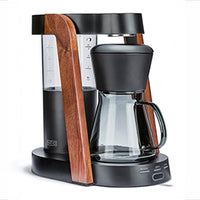You’ve Been Drinking Coffee Too Early in the Morning
Key Takeaways
-
Your body naturally produces cortisol in the early morning, which helps wake you up
-
Drinking coffee during peak cortisol hours can reduce caffeine’s effectiveness and increase dependence
-
Waiting 60–90 minutes after waking optimizes caffeine’s alertness benefits
-
Timing your coffee with your body’s rhythm helps avoid energy crashes
-
A small shift in your coffee routine can lead to better energy, mood, and focus throughout the day
If your morning coffee is the first thing you reach for after opening your eyes, you’re not alone. But while this ritual feels comforting — even necessary — it might be sabotaging the very alertness you’re trying to achieve.
Here’s the kicker: your body is already wired to wake you up naturally. When you layer caffeine on top of that natural system too early, you dull its impact and may build tolerance faster. Let’s unpack why the timing of your first cup matters just as much as the quality of what’s in it
The Science of Cortisol and Morning Alertness
Cortisol isn’t just a “stress hormone” — it also plays a key role in regulating your sleep-wake cycle. Cortisol levels rise sharply in the early morning hours (typically 6–8 AM), helping your body wake up and get moving.
During this cortisol spike, your brain and body are already becoming alert — so caffeine has less room to work its magic.
Drinking coffee during peak cortisol windows may:
-
Diminish caffeine’s energizing effects
-
Increase tolerance over time
-
Lead to stronger afternoon crashes
-
Disrupt your body’s natural rhythm
Think of it like doubling up on fuel when your tank’s already full — it’s inefficient at best, counterproductive at worst.
When to Time Your First Cup for Maximum Effect
The sweet spot for caffeine? Roughly 60 to 90 minutes after waking.
This delay allows cortisol to do its job without interference. Then, as your natural alertness tapers off, caffeine kicks in — giving you a genuine boost rather than a redundant jolt.
For most people who wake between 6:30 and 7:30 AM, the best coffee window lands between 8:00 and 9:00 AM.
Benefits of delayed caffeine:
-
Smoother, more noticeable energy boost
-
Better mood and mental clarity
-
Fewer jitters and less dependency
-
More sustained focus throughout the morning
Even if you feel groggy at first, try drinking a full glass of water or going outside for sunlight before reaching for coffee. That early discomfort fades — and your body starts to relearn how to wake itself up naturally.
Why Early Coffee Can Lead to Energy Crashes
When you drink coffee too early, you’re essentially front-loading your caffeine intake when it’s least needed. This causes two common problems:
-
Tolerance builds faster, requiring more coffee to feel the same effects
-
Afternoon energy dips hit harder as your system comes down from a premature caffeine peak
This pattern often results in a second — or third — cup just to keep going. You end up riding a roller coaster of stimulation and fatigue instead of a smooth curve of steady alertness.
Rethinking Your Morning Ritual
We don’t suggest skipping coffee — just reframing your relationship with it.
Try this routine:
-
Wake up and hydrate: A tall glass of water helps rehydrate after sleep
-
Get light exposure: Open blinds or step outside to signal your body it’s time to wake up
-
Move gently: Stretch, take a short walk, or do light chores to encourage circulation
-
Wait at least 60 minutes, then enjoy your coffee mindfully
You’ll still get the pleasure of your morning brew — but with improved energy and less fog by mid-morning.
What About Early Risers or Shift Workers?
The cortisol peak shifts with your schedule. If you’re up at 4:30 AM, your natural alertness window happens earlier — and so does your ideal coffee window.
Apply the same principle: wait 60–90 minutes after waking, regardless of your clock time. The goal is to let cortisol rise and fall naturally before you intervene with caffeine.
Timing Isn’t Everything, But It’s a Big Deal
Coffee is a powerful tool — one that’s even more effective when used strategically. Drinking it too early in the day dulls its edge and messes with your rhythm.
When you wait just a little longer, you make room for your body to do what it’s built to do. Then, when your energy naturally starts to dip, coffee can step in as a useful ally — not a crutch.
Quality Still Matters
Of course, the timing of your coffee means little if the brew itself doesn’t deliver. Choosing fresh beans, a reliable grinder, and a well-designed coffee machine ensures your delayed cup is as satisfying as it is energizing.
Coffee machines like those from Ratio Coffee are engineered to provide precision and consistency — helping you get the most from each cup, no matter when you drink it.

Frequently Asked Questions
Isn’t coffee right after waking up the norm?
It is — but that doesn’t mean it’s optimal. Your body is naturally alert during its cortisol peak. Delaying caffeine actually improves its effectiveness.
What if I wake up groggy and need coffee immediately?
Try hydrating, stretching, or getting sunlight first. Your body can learn to wake up more naturally without immediate caffeine.
Will this help reduce my afternoon crash?
Yes. Delaying coffee helps align it with your body’s dip in natural energy, smoothing out the crash-rebound cycle.
How long should I wait if I wake up at different times each day?
Apply the same 60–90 minute rule from your wake-up time. It’s based on body rhythm, not the clock.
 Ratio Eight S2
Ratio Eight S2
 Ratio Eight Original
Ratio Eight Original
 Ratio Six
Ratio Six
 Ratio Four
Ratio Four
 Compare Machines
Compare Machines






